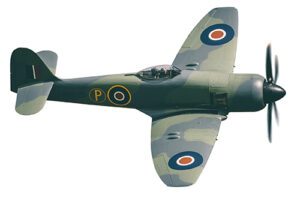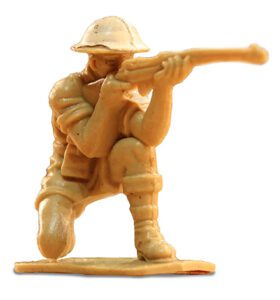

In our attention economy, books are the great losers. Even when people do encourage reading through the formation of book clubs, it’s taken for granted that the book is a pretence for a bottle of wine and a chat. In a great counter-cultural act, a Presbyterian-minister friend gathers a group of us together every fortnight to discuss great literature, viewing this as a formational and deeply Christian pursuit.
Great literature is life-changing – not usually so directly that a reader lets a book fall to their lap knowing that they are no longer who they were when they began. And yet however lightly a book tilts the wheel of one’s ship, over the course of life’s journey, it is often enough to alter its destination. Literature does so in at least three ways.
Ideas are everywhere. We endure thousands of communication attempts every day. Our minds are buried under the rubble of daily noise where even the most precious ideas lie dull and uncut and unnoticed. As readers, we invite an author to open us, to prepare us to receive their most precious gems, polished and powerful. Ideas are everywhere, but reading is one of the rare ways in which ideas are birthed in us.
Secondly, reading is an exercise of empathy. In reading we are asked to inhabit the world of the author and to live a story through their characters, to embody the experiences even of people we would prefer to ignore.
Third, reading is discipleship. Tamara Cohn Eskenazi* writes that “great literature shapes readers’ morality by complicating their sympathies.” In literature, we are locked in a contest with temptations and troubles that we have not yet faced; we are forced to solve moral equations that life has not yet posed us.

Lord of the Flies celebrates its 70th anniversary this year. It has long been a high-school setwork, not least because antsy pupils might naturally resonate with its crash-landed schoolboy protagonists gone feral on a pacific island. The plot concerns the formation of a volatile society and a contest for leadership fought over the competing priorities of order, rescue, and hunting.
This book is often – I think mistakenly – understood to be the story of what humans are prone to devolve into should the constraints of civilised society be removed. A wonderful Guardian article rebuts Golding’s book with a true story of six shipwrecked boys who survived happily and industriously on an island for more than a year. As wonderful as the triumphant human spirit can be, this story is only superficially related to Golding’s.
On the surface of it, Golding’s big idea is viscerally unsubtle. It is preached to one of the boys by the bloodied, fly-covered head of a pig – brutalised, disembowelled, decapitated, set on a pike as an offering to the beast of the island. I am the beast, mocks the lord of the flies. I am part of you. Return to your friends on the beach. The beast is there too.
Lest we missed it, from the foot of the book’s last page the narrator wails his lament directly into the reader’s face, in one of literature’s most beautifully unnecessary lines of exposition: “Ralph wept for the end of innocence, the darkness of man’s heart, and the fall through the air of the true, wise friend called Piggy.” Golding is capable of exquisite literary craft and the book is full of deft touches that are to be treasured. But perhaps one thing that Lord of the Flies wants to say is that some messages are beyond subtlety. Some messages need to be vomited from an impaled pig’s head.
It is in empathy and in the complication of our sympathies that Lord of the Flies makes deeper demands of its reader. Piggy is a boy who doesn’t belong. He is of a lower social class – at the school by special dispensation – overweight, asthmatic, sight-impaired, orphaned. The closest thing he has to a friend, the leader Ralph, disregards his only wish – not to have his demeaning nickname perpetuated in this new society – rescuing him from being mocked as “fatty” only by handing his tormentors the name “Piggy.” Simon is another outsider. Choked by social anxiety, psychologically vulnerable, and prone to fits, he is also brave, alone willing to face the monsters that oppress the island, and in his concern to help his friends, he is the first to become a victim of the beast.
Then there are the “littleuns,” the children too small to have a voice in society, too small to have names, too small to be counted. In the excitement of fire discovered and let out of control, one of them simply disappears – a loss raised often but never faced. A boy claimed by the island but not given the dignity of a mention in the final body count. These are the three with whom we are most called to empathise and the three who, through nastiness or neglect, are brutalised by this society and swallowed by the sea.
 The clearest signal that this is not a book about human dissolution into depravity is the setting of this story against the backdrop of war. At its start, their plane is shot down. Piggy mentions the dropping of the atom bomb. Later, when Ralph wishes that something “grown up” would be given to them, as a sign, what arrives is an unseen fighter plane felled at night over the sea. The parachute-entangled corpse of the pilot is dragged into a gloomy cleft of their mountain and becomes a new billowing terror to fuel their nightmares. The boys’ own climactic war is staged at a place they name Castle Rock. At the conclusion of the book, even their rescuers arrive dressed for battle.
The clearest signal that this is not a book about human dissolution into depravity is the setting of this story against the backdrop of war. At its start, their plane is shot down. Piggy mentions the dropping of the atom bomb. Later, when Ralph wishes that something “grown up” would be given to them, as a sign, what arrives is an unseen fighter plane felled at night over the sea. The parachute-entangled corpse of the pilot is dragged into a gloomy cleft of their mountain and becomes a new billowing terror to fuel their nightmares. The boys’ own climactic war is staged at a place they name Castle Rock. At the conclusion of the book, even their rescuers arrive dressed for battle.
Ralph, fleeing a wild blaze and a horde of pursuers, falls at the feet of a British naval officer who had spotted their “signal fire” (or in Ralph’s telling, “The burning wreckage of the island”). He speaks with cool colonial calm. Finding them mid-battle, the bemused officer asks, “What have you been doing? Having a war or something?” Finding this to be so, he asks the painfully matter-of-fact question, “Nobody killed, I hope? Any dead bodies?” To which comes the reply, “Only two. And they’ve gone.” Learning that the boys had not so much as counted the number of littleuns in their ranks, he remarks that as British boys – “You’re all British, aren’t you?” – he would have thought they’d “put up a better show than that.” As the boys’ wailing begins, the officer turns away embarrassed and gives them time to “pull themselves together.”
 This isn’t a book about how, left to our own devices, we’d all fall into savagery. It’s a book about how the highest of society is already there. It is the officer, we might say, who is the true target of his critique: the smartly uniformed beast, the purveyor of fine tally-hos and jolly-good-shows, the genteel savage who plays war, who drops atom bombs, and who knows the right time to look the other way.
This isn’t a book about how, left to our own devices, we’d all fall into savagery. It’s a book about how the highest of society is already there. It is the officer, we might say, who is the true target of his critique: the smartly uniformed beast, the purveyor of fine tally-hos and jolly-good-shows, the genteel savage who plays war, who drops atom bombs, and who knows the right time to look the other way.
Dr Jordan Pickering is Director of Media at KLC, an Associate Editor of TBP and an Associate Fellow of the KLC.
* T. C. Eskenazi, “Torah as Narrative and Narrative as Torah,” in Old Testament interpretation: Past, present, and future: Essays in honour of Gene M. Tucker J. L. Mays, D. L. Petersen and K. H. Richards, eds. (Nashville, TN: Abingdon Press, 1995), 28–29.

Get the latest issue in print or subscribe for the next three.